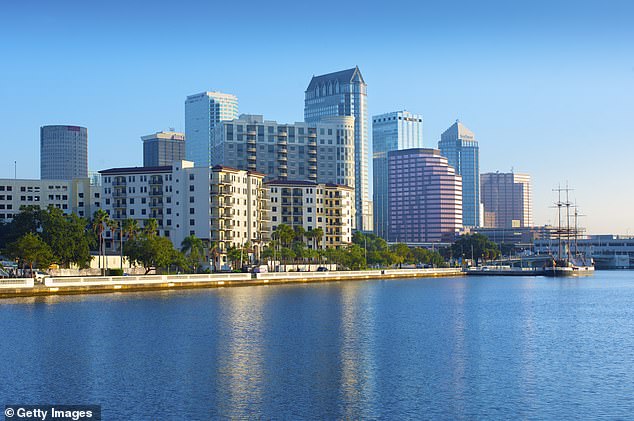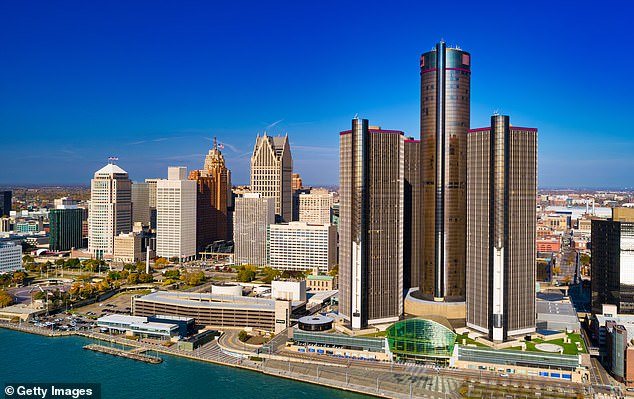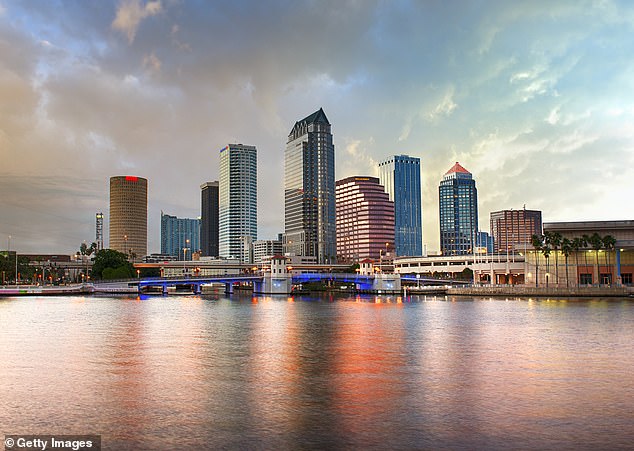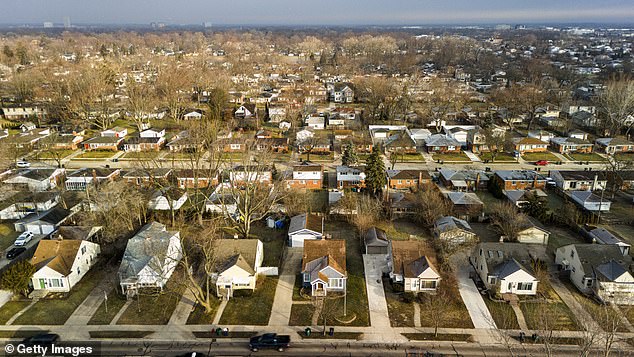A new study has named the five American cities most affected by inflation, as well as the five cities where prices are not rising as quickly.
According to a recent WalletHub study, Dallas, Detroit, Honolulu, San Francisco and Seattle are the cities where residents feel the effects of inflation the most.
The study findings were based on key inflation metrics within the top 23 metropolitan statistical areas relative to the most recent data, data from two months ago, and data from one year ago from the Consumer’s price index.
While inflation hit 3.3% nationally in May compared to last year, some cities saw steeper price increases.
According to a study by WalletHub, Detroit (3.5%), San Francisco (3.8%), Seattle (4.4%), Dallas (5.0%) and Honolulu (5.2%) recorded inflation rates higher.
According to a recent WalletHub study, Dallas, Detroit (pictured), Honolulu, San Francisco and Seattle are the cities where residents feel the effects of inflation the most.

On the other hand, some cities have barely felt the effects of inflation, including San Diego, Atlanta, Denver, Minneapolis and Tampa.
On the other hand, some cities have barely felt the effects of inflation and recorded increases of between 1.8% and 3.2%. These cities include San Diego, Atlanta, Denver, Minneapolis and Tampa.
Dallas is grappling with especially high inflation, driven in part by a lack of available housing. These shortages are driving up the cost of rents and mortgages, said Dean Stansel, a research economist at Southern Methodist University. CBS Money Watch.
The influx of new residents (150,000 between July 2022 and July 2023) has outpaced the construction of new homes, creating a competitive market for housing.
“Government restrictions on new housing construction make it difficult for supply to meet demand,” Stansel said. “That housing shortage is driving up prices more than they would have otherwise been.”
Minimum wage increases The result in higher labor costs for local businesses is another factor explaining why cities, like Seattle, are especially feeling the effects of inflation.
“Those higher labor costs lead to higher prices for output by businesses that use minimum wage labor, such as fast food restaurants and grocery stores,” Stansel said.
“Those higher prices for cheap food are particularly burdensome for those on low incomes struggling to make ends meet.”
The Federal Reserve decided to hold its key interest rate steady and signaled a more cautious approach to lowering rates after the latest CPI data was released.
While they anticipate a single rate cut this year, the Federal Reserve has not revealed when the rate cut will occur.
The data also revealed that the price of airline tickets, furniture, clothing, new vehicles, energy and recreation fell in May, helping to keep inflation at bay.
However, housing costs increased for the fourth consecutive month, more than 0.4%.
Price increases include health care, used cars and trucks, education costs and eating out, which also increased.
According to economists, two of the main factors preventing inflation from declining are housing and fuel costs.

The influx of new residents in Detroit (pictured) has outpaced new housing construction, creating a competitive market for housing.

Minimum wage increases resulting in higher labor costs for local businesses is another factor explaining why cities are especially feeling the effects of inflation.
“The expectation is that inflation in these areas will eventually fall as these price effects run their course in different markets, but it is true that this is taking longer than many initially predicted,” said Grant Black, an economist at the Lindenwood University, in the WalletHub study.
“The expectation is that inflation in these areas will eventually fall as these price effects run their course in different markets, but it is true that this is taking longer than many initially predicted,” said Grant Black, an economist at the Lindenwood University, in the WalletHub study.
“Fortunately, recent inflation data shows that food and fuel prices have begun to fall modestly, which is a boon for consumer budgets.”


